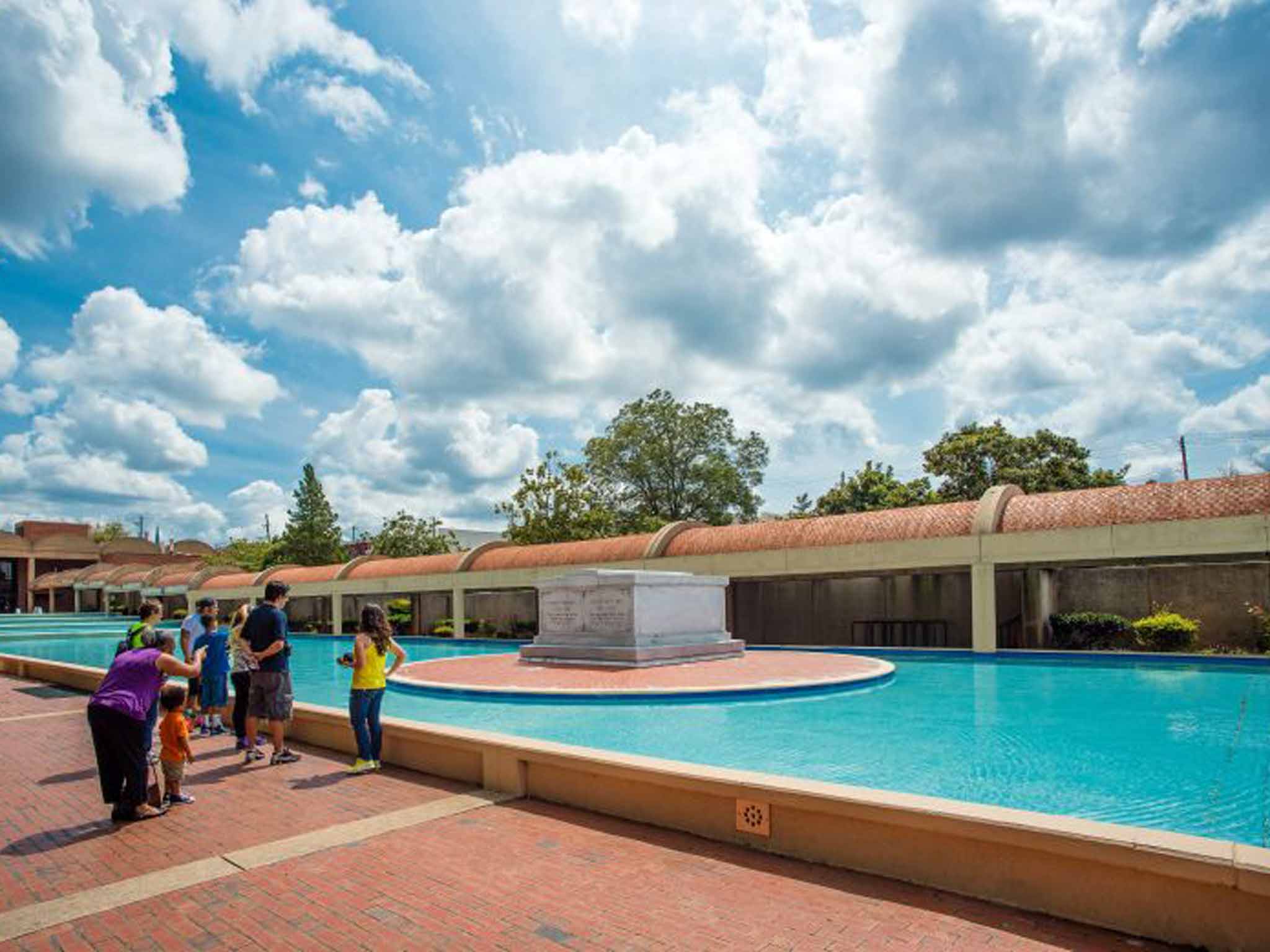The Independent's journalism is supported by our readers. When you purchase through links on our site, we may earn commission.
Selma: Explore civil rights in the US, from the Deep South to Washington DC
Nicola Trup highlights where to find out more about the groundbreaking movement led by Martin Luther King Jr

Your support helps us to tell the story
From reproductive rights to climate change to Big Tech, The Independent is on the ground when the story is developing. Whether it's investigating the financials of Elon Musk's pro-Trump PAC or producing our latest documentary, 'The A Word', which shines a light on the American women fighting for reproductive rights, we know how important it is to parse out the facts from the messaging.
At such a critical moment in US history, we need reporters on the ground. Your donation allows us to keep sending journalists to speak to both sides of the story.
The Independent is trusted by Americans across the entire political spectrum. And unlike many other quality news outlets, we choose not to lock Americans out of our reporting and analysis with paywalls. We believe quality journalism should be available to everyone, paid for by those who can afford it.
Your support makes all the difference.Tomorrow sees the release of Selma, the critically acclaimed film based on a series of political marches through Alabama in 1965. Led by activists including Martin Luther King Jr, the marches were a landmark in the Civil Rights Movement, resulting in a change to the voting rights of African Americans.
Today, there remain plenty of places to explore the Movement in the Deep South and beyond. A fly-drive package is a good way to cover a lot of ground; Bon Voyage has a six-night In the Footsteps of Freedom tour that takes in Atlanta, Montgomery, Birmingham and Selma from £1,595pp. It includes Virgin Atlantic flights from Heathrow to Atlanta, room-only accommodation and car hire.
Here are some of the essential stops on any Civil Rights itinerary.
Head for home
Where better to start than Martin Luther King's hometown, the Georgia state capital of Atlanta? In the Sweet Auburn district you'll find his birth home and tomb, as well as the Ebenezer Baptist Church, where both he and his father preached. Martin Luther King Jr National Historic Site (001 404 331 5190; nps.gov/malu; free), encompasses all of the above. Tours of the birth home are on a first-come-first-served basis, so arrive early.
Follow up with a visit to the Center for Civil and Human Rights (001 678 999 8990; civilandhumanrights.org; $15/£10). Housed in a striking modern building downtown, it opened last year and is full of fascinating interactive exhibits.
Alabama-bound
In Birmingham, Alabama's largest city, explore the officially designated Civil Rights District. Landmarks include 16th Street Baptist Church (16thstreetbaptist.org; tours $5/£3), the scene of a deadly bombing in 1963; Kelly Ingram Park, where many protests were held; and the Birmingham Civil Rights Institute (001 205 328 9696; bcri.org; $12/£8), whose permanent collection includes the door to the cell in which King wrote his "Letter from Birmingham Jail".
Road trip
Follow the historic route documented in Selma. The Selma Interpretive Center (001 334 872 0509; nps.gov/semo; free) will give you an introduction to the marches, while the National Voting Rights Museum and Institute (001 334 418 0800; nvrmi.com; $6.50/£4) provides more information about the aims and outcomes. The latter sits by Edmund Pettus Bridge, the location of the "Bloody Sunday" clash between protesters and police.
Drive the 50 miles to Montgomery and visit the Rosa Parks Museum (001 334 241 8661; troy.edu/rosaparks; $7.50/£5), named after the woman who kick-started a city-wide bus boycott by refusing to give up her seat to a white passenger. Also explore Dexter Avenue Baptist Church (001 334 263 3970; dexterkingmemorial.org; tours $5.50/£4), where King helped to organise the boycott.
Memphis memorial
The Tennessee city of Memphis isn't all Elvis and blues; it also holds a grim place in history as the place where King was assassinated in 1968.
The Lorraine Motel, where he was shot, has been converted into the engrossing National Civil Rights Museum (001 901 521 9699; civilrightsmuseum.org; $15/£10), with more than 260 artefacts, as well as films, audio and interactive displays. The room in which King was staying has been preserved as a memorial.
Go north
Civil Rights history isn't exclusive to the South. Washington DC has several sites crucial to the movement. Cedar Hill (001 202 426 5961; nps.gov/frdo; tours $1.50/£1) is the final home of the 19th-century activist, Frederick Douglass, who escaped slavery, wrote a bestselling memoir, and became a leader of the abolition movement.
From 2-30 March be sure to stop at the Library of Congress (001 202 707 5000; loc.gov; free), which will be displaying around 20 documents and photographs from Rosa Parks's personal collection. From 7 March, several items will be added to the "Civil Rights Act of 1964" exhibition, which runs until 12 September.
Also worth a visit is the inscription that marks the spot where King delivered his famous "I have a dream" speech, on the steps of the Lincoln Memorial.
The Willard Hotel (001 202 628 9100; washington.intercontinental.com), where King put the finishing touches to his speech, has doubles from $329 (£219), room only.
Join our commenting forum
Join thought-provoking conversations, follow other Independent readers and see their replies
Comments